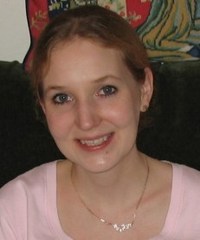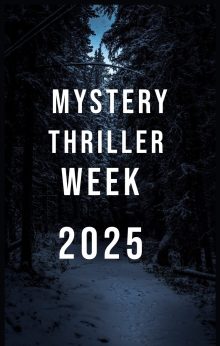Q&A for MysteryThrillerWeek.com
Charles Veley & Anna Elliott, authors of The Sherlock Holmes & Lucy James Mystery Series
What’s it like crafting stories about the great Sherlock Holmes?
Pretty exhilarating, actually. We’re in a wonderful tradition, with a lot of brilliant company. And Holmes is so familiar to us both that it’s a joy imagining what he’d do when faced with a particular problem. At first we wondered how readers would respond to our bringing a daughter into Holmes’s life, but the overwhelming majority of reviews are enthusiastic supporters of the idea.

What was your creative process for writing Lucy James?
Anna had the idea of where she’d be the first time Holmes and Watson would see her – on the stage at the D’Oyly Carte opera, singing the lead in The Mikado. Watson described her there, and when she entered a few pages later, she took on a life of her own. She still does. We imagine the situations and Lucy takes it from there.
What kind of relationship do Sherlock and Lucy have and how do they complement each other?
They’re different, but equals. Sherlock has a deep and abiding respect for Lucy, and vice versa. Of course, she’s admired him ever since she read Watson’s accounts of his adventures when she was an American schoolgirl. In our stories, the two are not competing and the conflict is never the sort you would find in a ‘buddy’ movie. Our Sherlock and Lucy each go to different places and investigate different parts of the central problem. Then they exchange thoughts and draw their own conclusions. Generally, Holmes takes the role of cautious parent when advising Lucy — but he doesn’t always get his way. And they save each other’s life again and again. Towards the end of the first book there’s this exchange of dialogue, after Lucy saves Holmes in a gunfight and learns whose daughter she really is:
Holmes said quietly, “Lucy, I owe you my life.”
“Well, now I know I owe you my life,” said Lucy, her eyes shining. “So I guess we’re even.”
So, yes, different, but equals.

How do you share in the writing process?
We start with the core situation of the story and exchange emails on that. Then we’ll send each other chapters of the opening scenes–Anna doing the Lucy chapters and me doing Watson’s. Soon we exchange more emails on where the story goes next, and then we’ll exchange blocks of chapters until we’re done. This all happens via email and Word documents, since we’re hours away from each other. Once in a while we’ll talk about it when we’re visiting or on the phone, but those times are generally devoted to family matters rather than our books.
Is Sherlock Holmes the greatest detective of all time?
Life Magazine says he is, in their 2016 issue titled “The Story Behind The World’s Greatest Detective.” Holmes is the most filmed character of all time, he has hundreds of fan clubs around the world, he has larger-than-life-size bronze statues erected to him in both London and St. Petersburg, and hundreds of new stories about him are published every year. Can any other detective say the same? Or even come close? I think the evidence is overwhelming. Though I must admit I’ve never seen Holmes’s picture on bubble gum cards ;-).

What’s Lucy James’ view of her Father?
She understands that he needs his own space – just as she needs hers. Each of them has their own life to lead. Lucy has strong emotional relationships to people – her husband, to name but one person – and in some ways she feels regret that Holmes won’t have many of the satisfactions that come with the life of the heart. But she respects his long-ago choice to pursue his profession with such intensity. She has a unique understanding of Holmes based on what she’s learned about him from her mother. As we continue with the series, Anna and I are exploring the roots of Holmes’s passions for justice and crime-solving—we think that’s going to be a very compelling tale indeed.
What role does Watson play helping Lucy James and Holmes on cases?
Watson is the steadying force, the rock, the friend and companion for both Holmes and Lucy. Watson chronicles the parts of the story he sees, as he did in the original tales. He also pitches in with the investigative duties where needed, and even when he hasn’t been asked. Of course he’s always been a good man to have at your side when faced with danger–this holds true in our stories as well. Our Watson, however, shows his human side just a bit more than the canonical figure. He’s challenged when his relationship with Holmes is rocked by the entrance of Lucy into Holmes’s life, and since his wife Mary passed away, he’s feeling the need for relationships even more. Still, he has the satisfaction of always being a key player in the battles Sherlock and Lucy are waging with the evildoers.
If Sherlock and Lucy were alive today, do you think they could solve some challenging cold cases?
Most definitely! As our series opens, in fact, Lucy herself is working the 21-year-old cold case of her identity, and she and Holmes get that one solved by the end of the last chapter, even while stopping an assassination attempt that would have destroyed the Empire! And that was without the aid of all the research tools we have today. So, the answer is definitely a resounding “Yes” I also think they’d take a good attitude toward our century if they found themselves here rather than in Victorian London. They’d both see the advantages to our global technology and wouldn’t spend a lot of time whining about trivia or how bored they are.
If you had to pick, who would you be: Watson, Lucy or Holmes?
It’s so tempting to pick Holmes, because who wouldn’t want to experience being that smart and energetic and independent, and also immortal? Also, though he does have all the cares of the world (or at least the world of the current case) on his shoulders, and that’s a heavy responsibility to bear alone, he still has Watson and Lucy for support.


A longtime devotee of historical fiction and Arthurian legend, Anna Elliott was expecting her first child when she woke up from a very vivid dream of telling her mother that she was going to write a book about Modred’s daughter, Isolde. She was very grateful to her daughter for being an excellent sleeper even as a newborn and allowing her the time to turn her dream into a finished book! She now lives in Princeton, New Jersey, with her husband and baby girl. Twilight of Avalon is her first published work.
www.annaelliottbooks.com
A Sherlock Holmes and Lucy James Mystery (9 book series)













